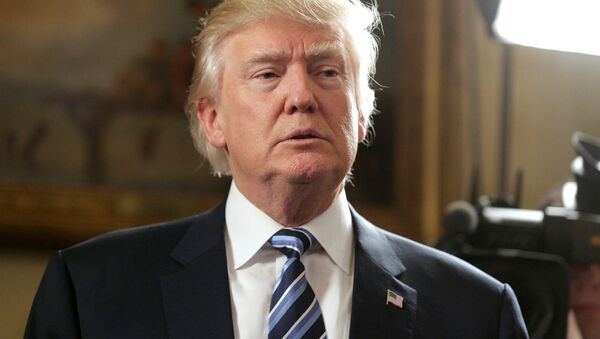Trump's presidential race was dominated by an anti-Muslim agenda and he was quick to react to the Berlin terror attack, December 19, 2016 in Berlin, in which a known asylum seeker drove a truck into a crowd of people at a Christmas market in Berlin, Germany, December 19, killing 12 and injuring over 50.

In an interview with German newspaper Bild and the Times of London following the attack, he said the 'open doors' policy had led to a mass insurgence of illegal immigrants as well as terrorists.
"I think it was a big mistake for Germany. And Germany of all countries, because Germany was one of the toughest in the world for having anybody go in, and, uh, no I think it was a mistake. And I'll see her and I'll meet her and I respect her. And I like her but I think it was a mistake. And people make mistakes but I think it was a very big mistake," Trump said.
Asked whether he would bar Muslims coming to the US, he replied: "Well, from various parts of the world that have lots of terrorism problems." His comments were taken as a lack of confidence in Europeans' ability to tackle the threat from radicalized Islamists, which had led to a series of attacks across Europe.
"In terms of his fairly broad-brush attitude towards European intelligence, he's not being very precise. We can see that he has concerns about the migration of terrorists groups, cells and operations across Europe, which we all — across Europe — have concerns about," a senior UK security expert and founder of ICP Group Will Geddes told Sputnik.
Big day planned on NATIONAL SECURITY tomorrow. Among many other things, we will build the wall!
— Donald J. Trump (@realDonaldTrump) 25 January 2017
"It relates to the Schengen [borderless Europe] area enabling that freedom of movement and therefore, by proxy, making it difficult for the intelligence agencies to be able to intercept and apprehend them.
"However, to take such a blanket approach is not going to be of great value to him, because as much as he thinks he can bring the fortress walls around America, it's not going to make them impervious to domestic extremism issues, which inevitably they face as everybody else does.The only way that you can combat that home-grown radicalization is by learning from your partners. He's cutting off his nose to spite his face, I think," Geddes told Sputnik.
Merkel's team have made it clear they are having issues trying to build relations with the Trump team in the aftermath of his inauguration. Although President Obama had made much of his close relationship with her, it will Britain's PM Theresa May who will have the first meeting with Trump.
"There are a lot of question marks over Angela Merkel's immigration policy and certainly affording asylum for such a large number. I think that is coming back to bite her. Having said that, there are mistakes that perhaps the German Government made, but it's one of those mistakes where lessons are learned and one works collaboratively to try and remediate that situation.
Millions of Muslims march against #IslamicState — why have we not seen more media coverage of this? https://t.co/XxsYULmGA9
— will geddes (@willgeddes) 23 January 2017
"To take a very staunch and negative opinion towards it is only going to alienate Germany as one of the intelligence partners that work with the CIA," Geddes said.


